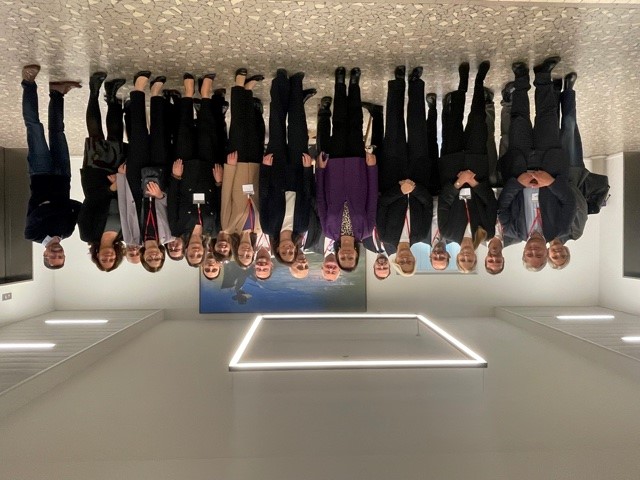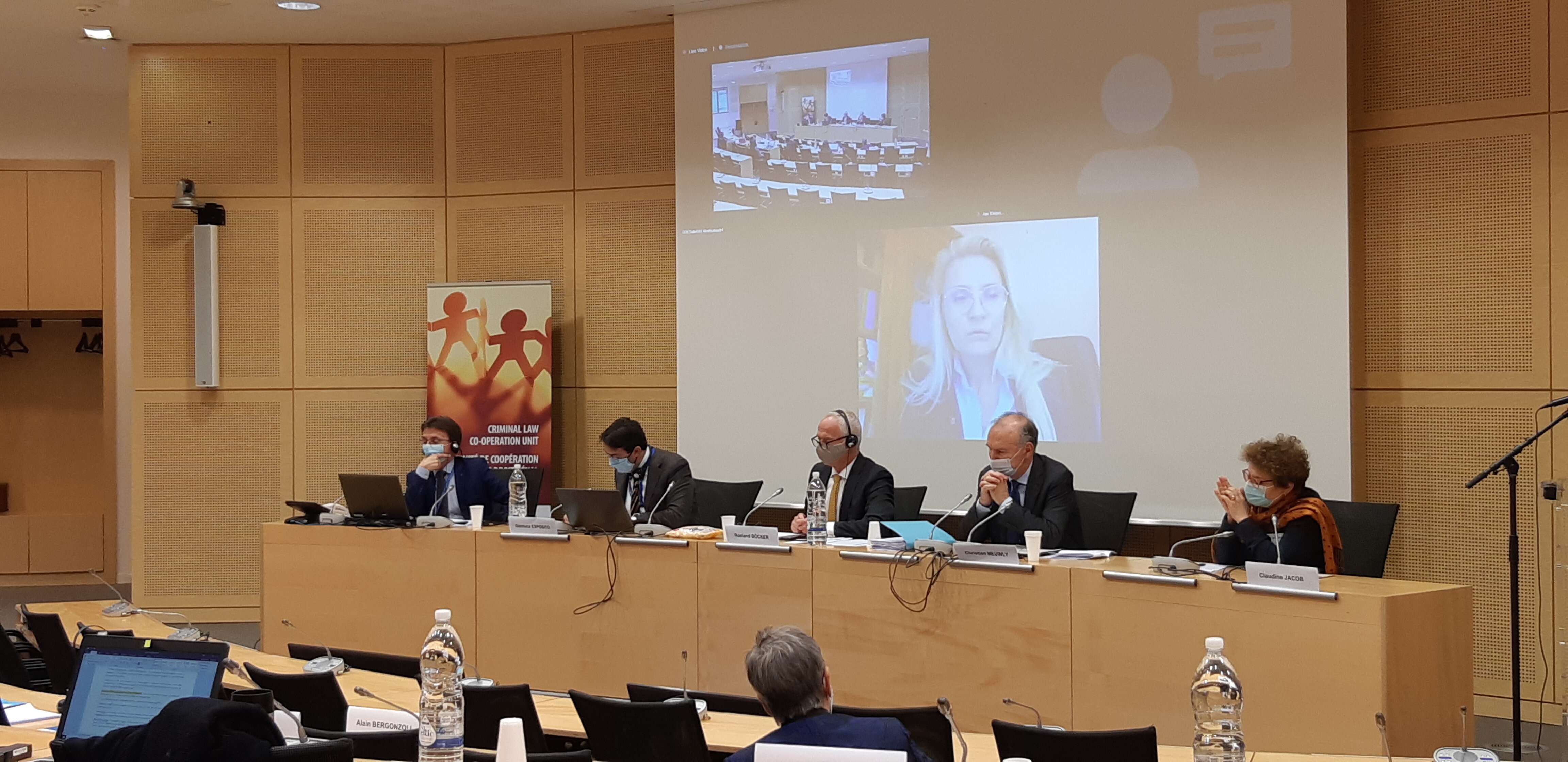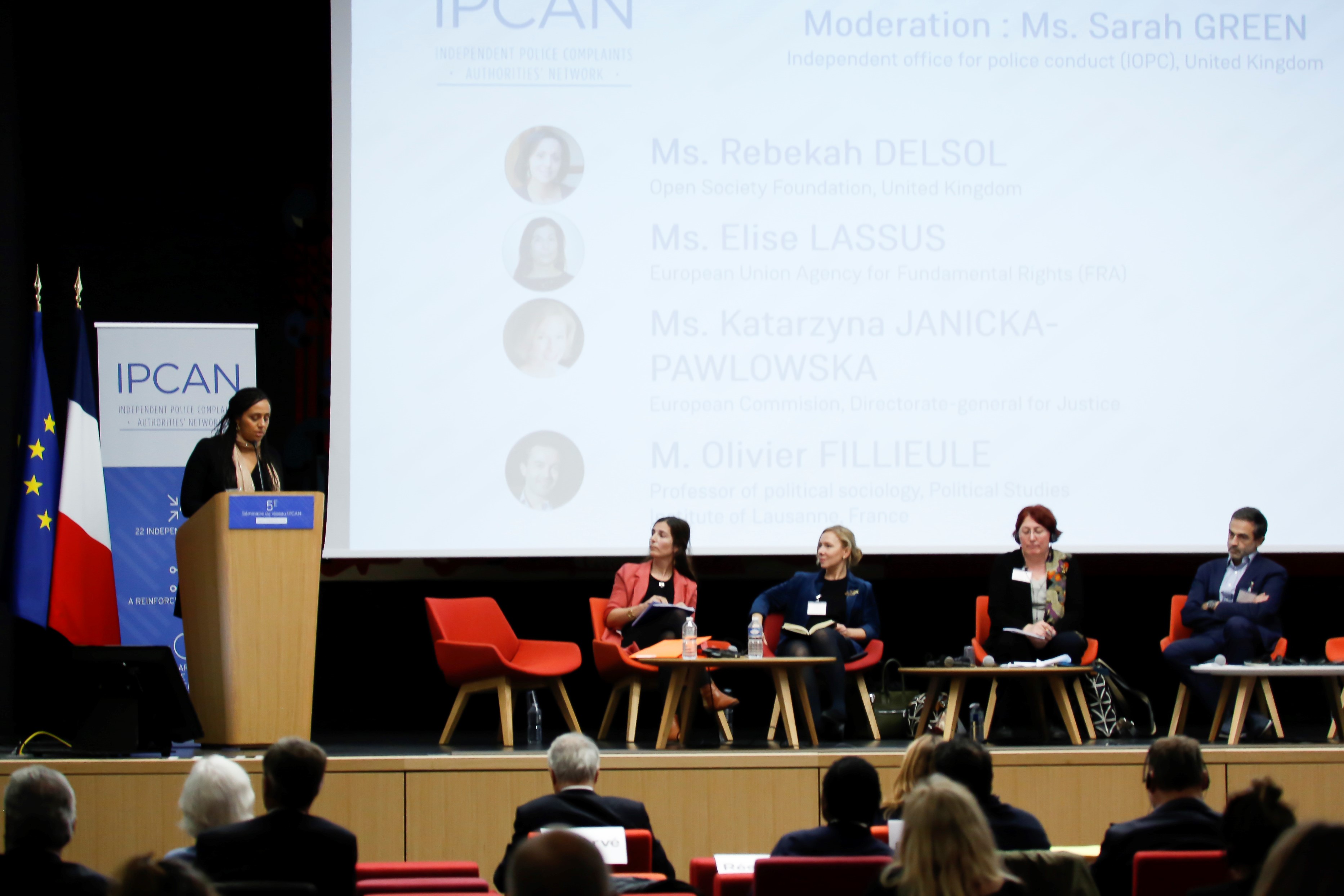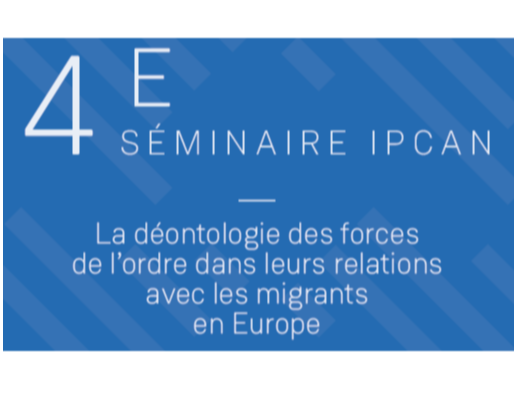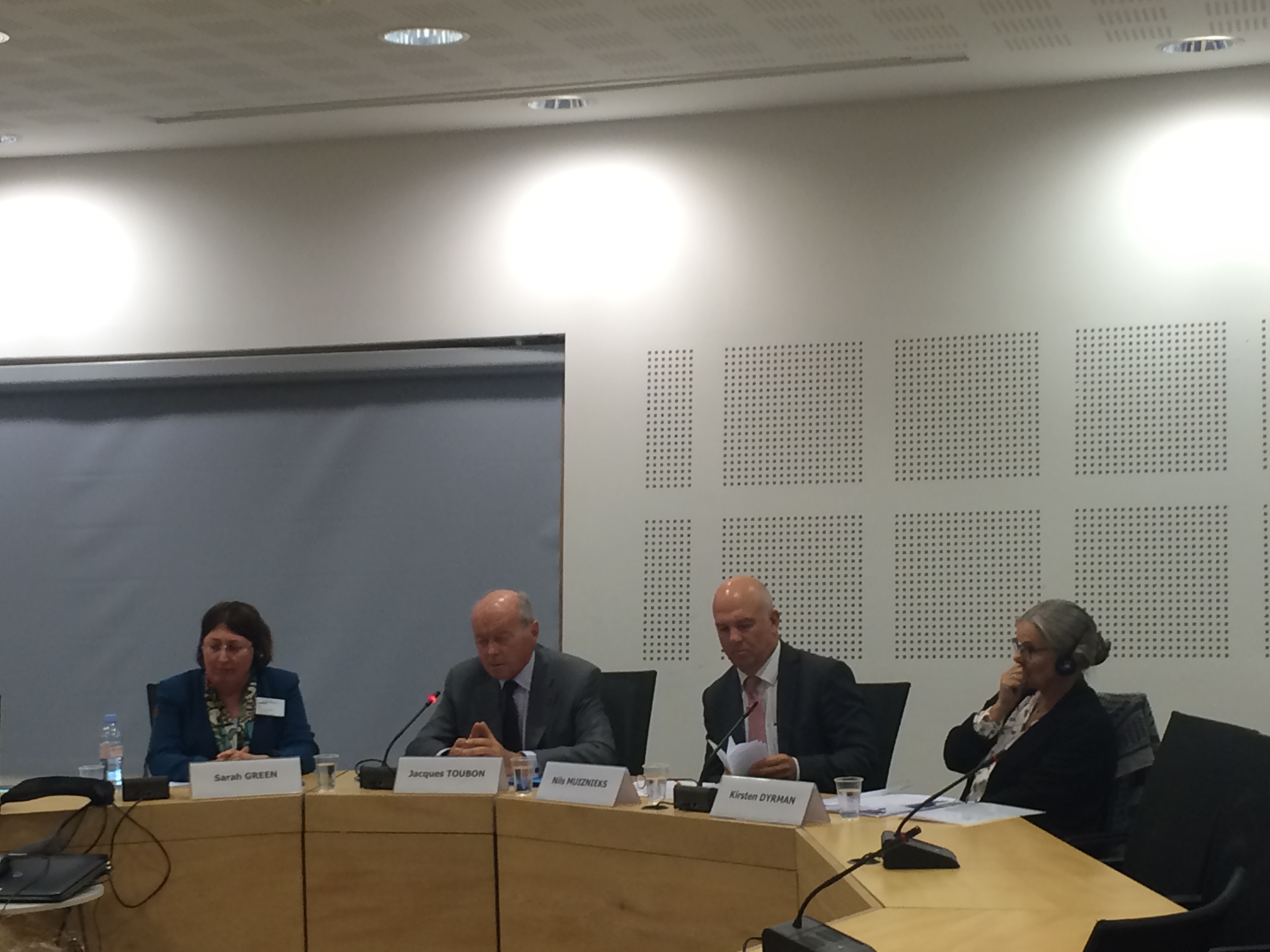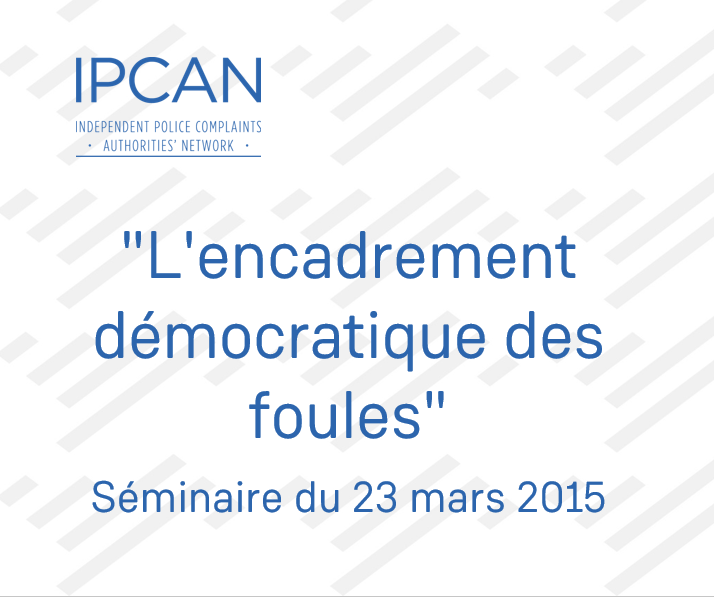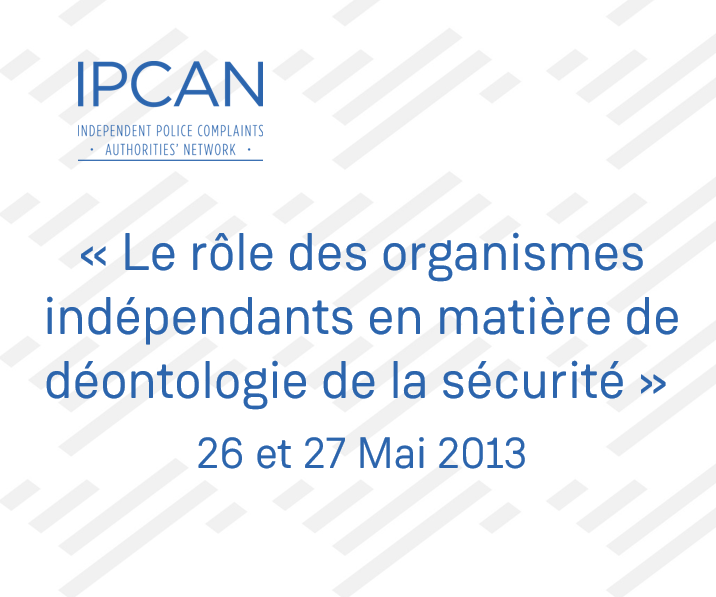On Friday, December 3, the Defender of Rights organised the 7th seminar of the IPCAN network (Independent Police Complaints’ Authority Network), entitled “External and independent mechanisms of monitoring of police: functioning, interactions, and effectiveness”.
While research tends to confirm a correlation between the existence of reliable control of law enforcement and the confidence of the public in its police[1], data from European surveys conducted by the European Social Survey and the European Union Agency for Fundamental Rights show that citizens have mixed opinions about police practices[2]. Strong disparities are observed, on the one hand between European countries, but also according to groups and different categories of police missions[3].
In the context of a demand for greater accountability of police forces, external and independent oversight bodies play an essential role in the “ecosystem” of police control mechanisms (hierarchy, internal inspections, parliament, courts, civil society, etc.). However, today, these bodies – mostly members of IPCAN – present a great diversity of statutes, powers and positioning in the institutional landscape of law enforcement oversight.
This seminar aimed to present, from an operational perspective, some of the existing bodies among the great diversity of external control mechanisms in Europe. The study of several concrete examples, both by members of the IPCAN network, but also by other actors involved in police oversight and police representatives themselves, representatives of civil society and researchers, highlighted the way these mechanisms interact, on the one hand, with other institutions such as the Parliament, the government, the judiciary, and, on the other hand, with other oversight bodies such as internal oversight services, inspection bodies, sanctioning bodies, but also with civil society.
The first results of a study financed by the Defender of Rights entitled “Police oversight in EU democracies: a comparative approach” were also presented at this seminar.
The seminar was structured around three themes: the positioning of external control bodies in the national monitoring context; the question of independence and impartiality of such bodies; and finally, how to deal with the question of the effectiveness of such bodies.
This seminar has initiated a first cycle of reflections on the subject within the IPCAN network which will continue its exchanges on the issue of the control of security forces in 2022.
The summary of the seminar is available below.Synthesis 7th IPCAN seminar
[1] Phillips E., Trone J., “Building Public Confidence in Police Through Civilian Oversight”, Vera Institute of Justice, Septembre 2002; Goldsmith A., “Police reform and the problem of trust”, Theoretical Criminology, Vol. 9, n°4, p. 461.
[2] https://fra.europa.eu/en/publication/2021/fundamental-rights-survey-police-stops; https://fra.europa.eu/sites/default/files/fra_ uploads/1132-EU-MIDIS-police_FR.pdf ; https://fra.europa.eu/sites/default/files/ fra_uploads/fra-2018-preventing-unlawfulprofiling-guide_fr.pdf ; https://fra.europa.eu/en/publication/2021/hate-crime-reporting#TabPubOverview0 ; https://fra.europa.eu/en/publication/2018/being-black-eu.
[3] Ibid.




